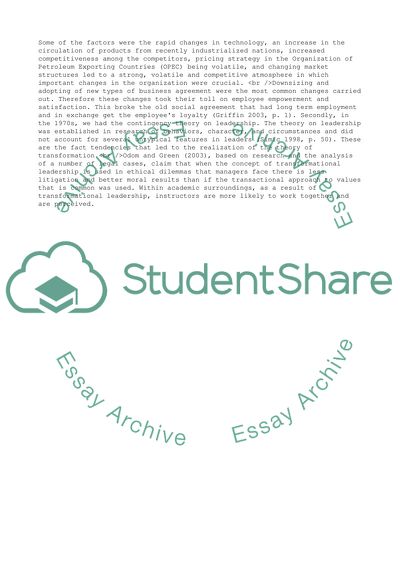Cite this document
(“Transformational Leadership Essay Example | Topics and Well Written Essays - 2000 words - 1”, n.d.)
Retrieved from https://studentshare.org/management/1623573-transformational-leadership
Retrieved from https://studentshare.org/management/1623573-transformational-leadership
(Transformational Leadership Essay Example | Topics and Well Written Essays - 2000 Words - 1)
https://studentshare.org/management/1623573-transformational-leadership.
https://studentshare.org/management/1623573-transformational-leadership.
“Transformational Leadership Essay Example | Topics and Well Written Essays - 2000 Words - 1”, n.d. https://studentshare.org/management/1623573-transformational-leadership.


